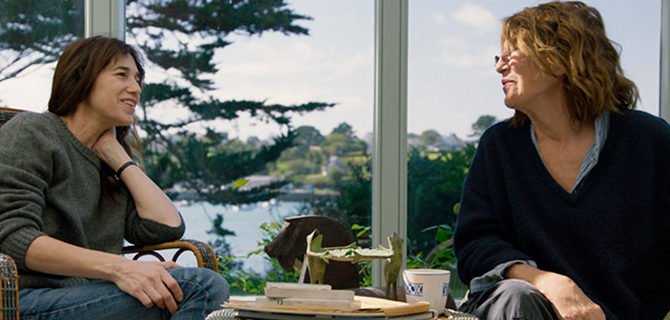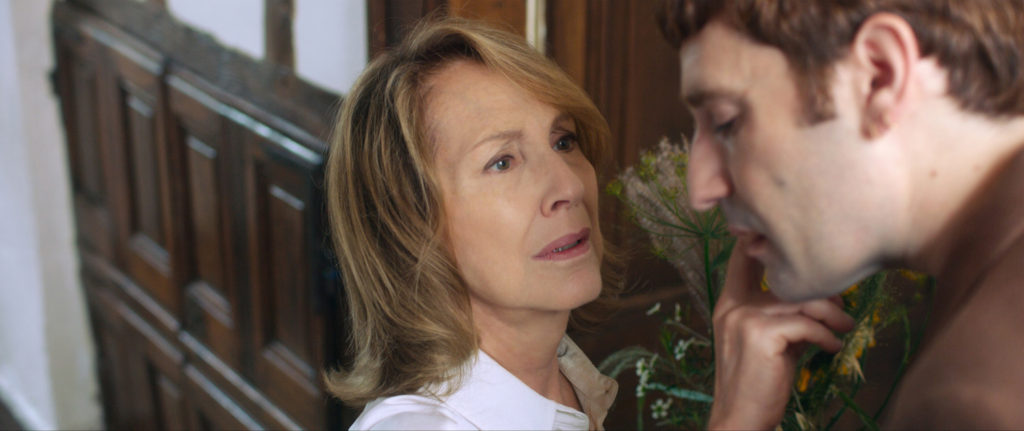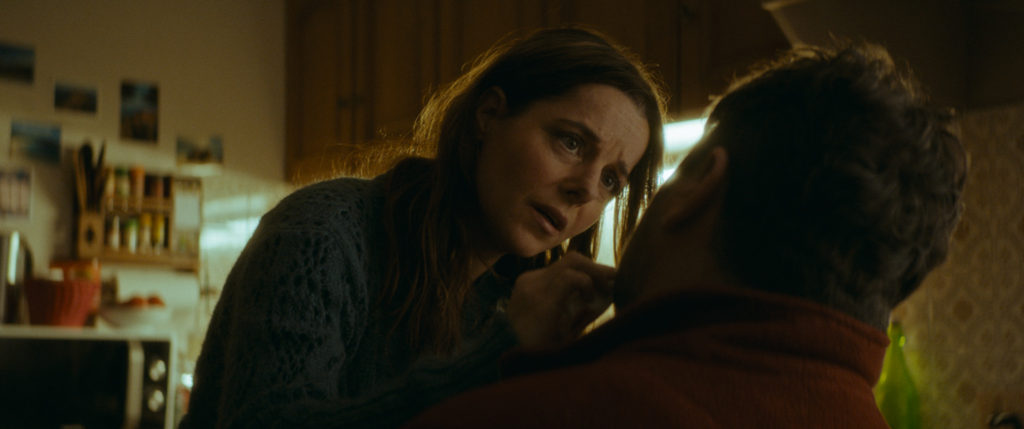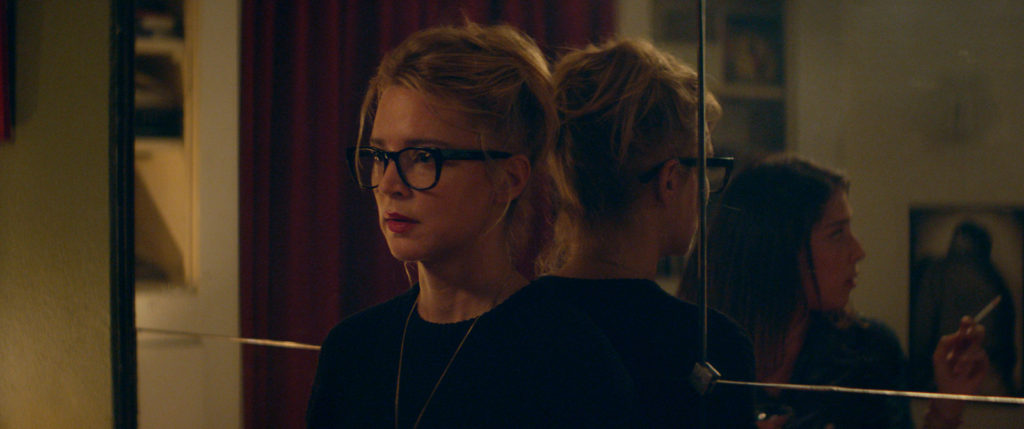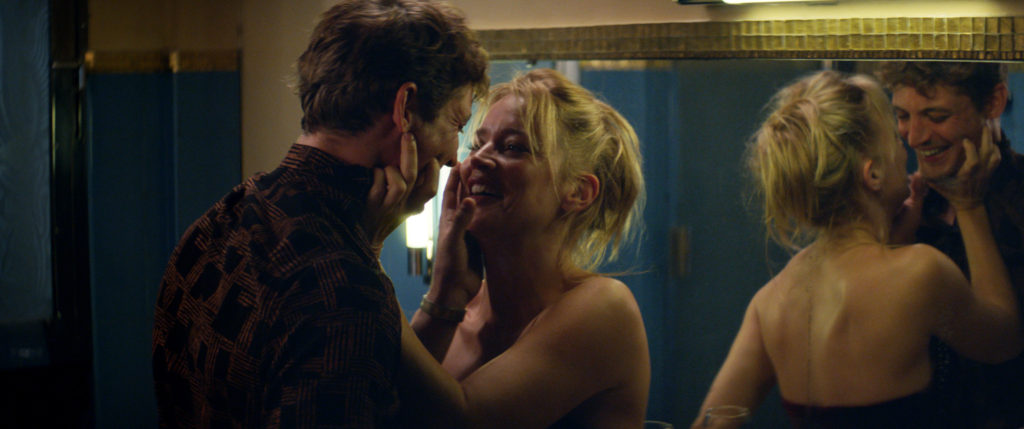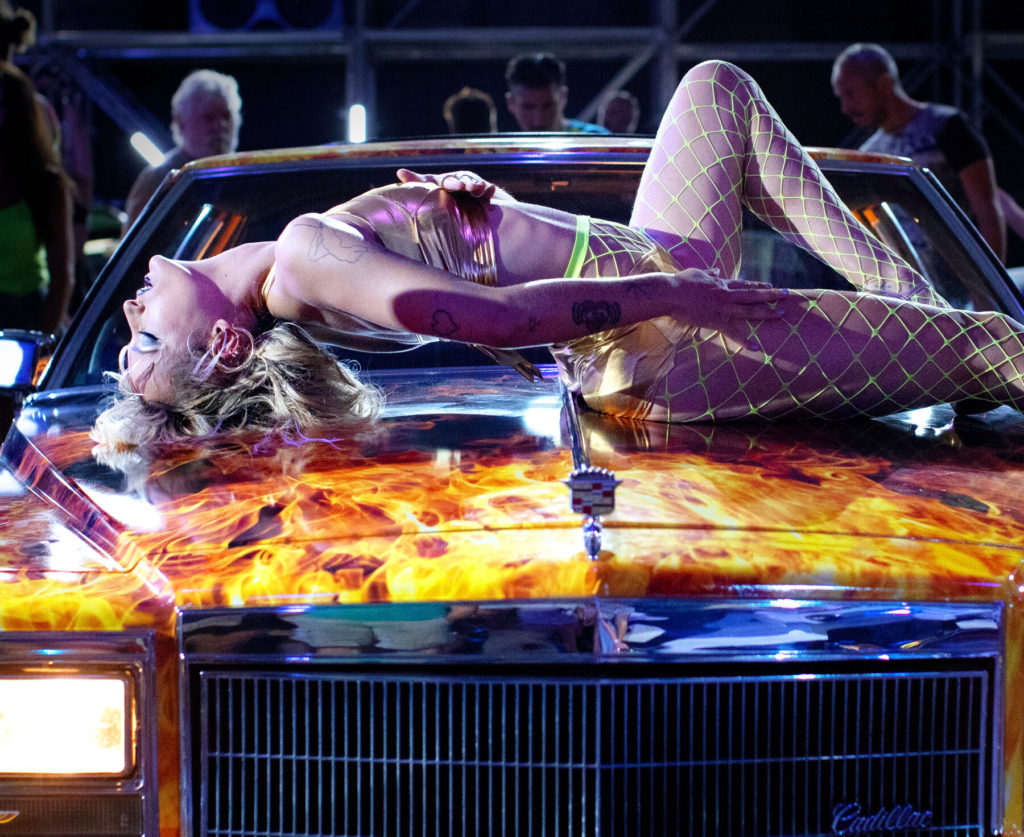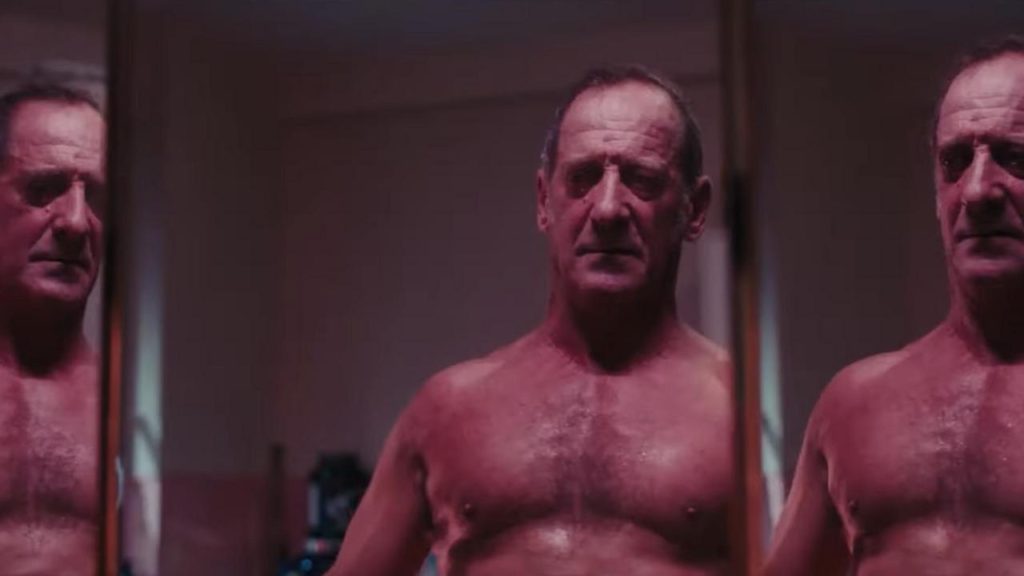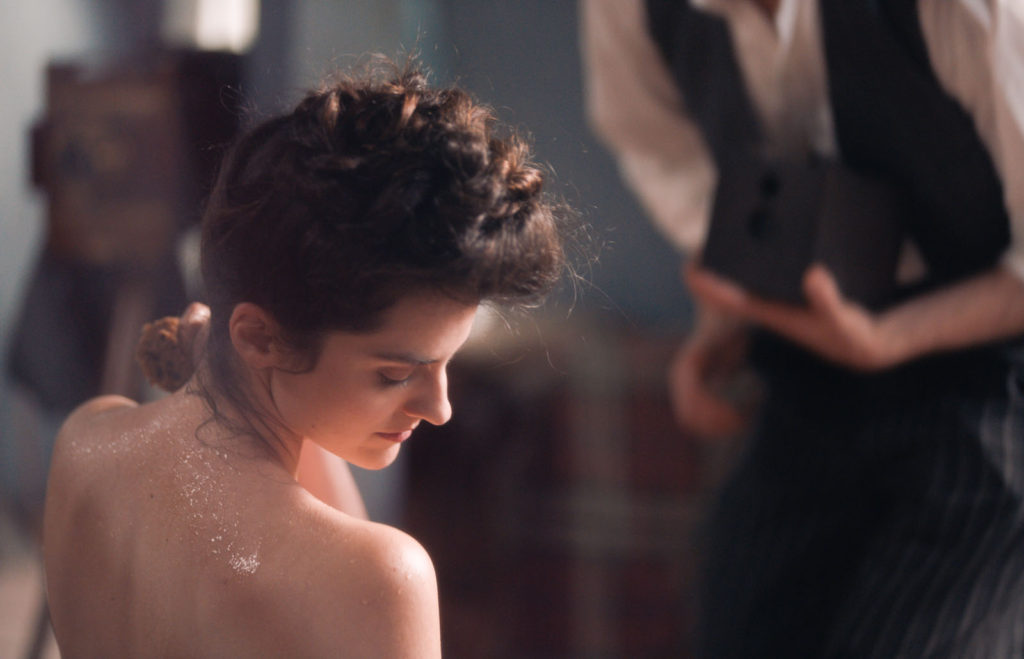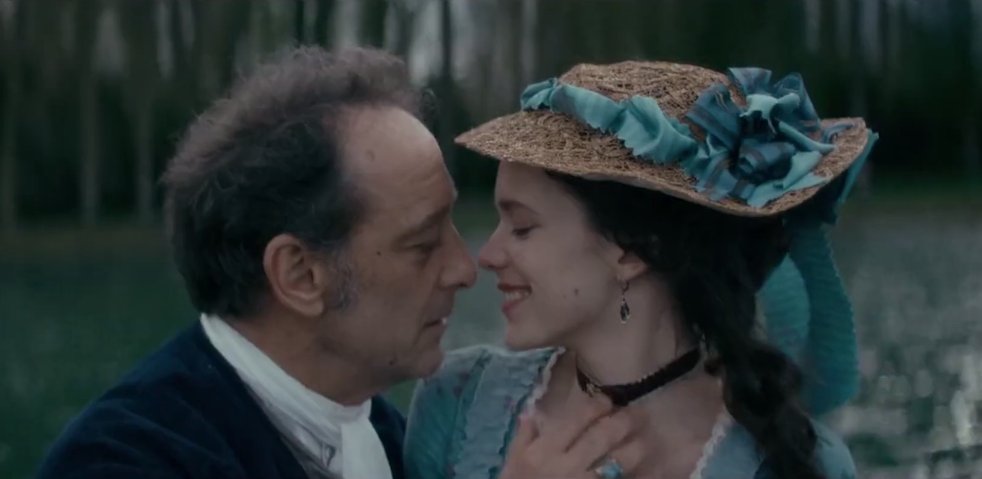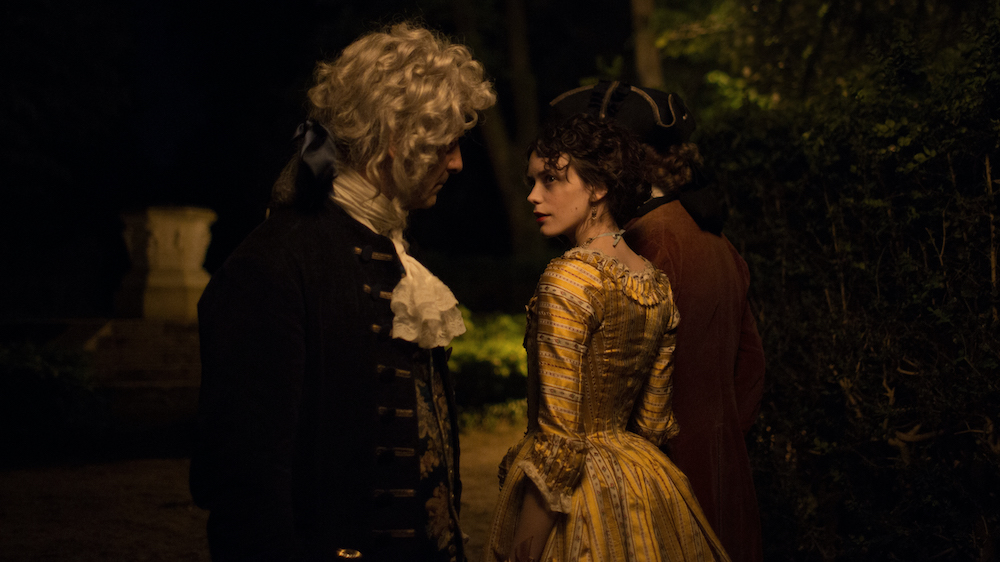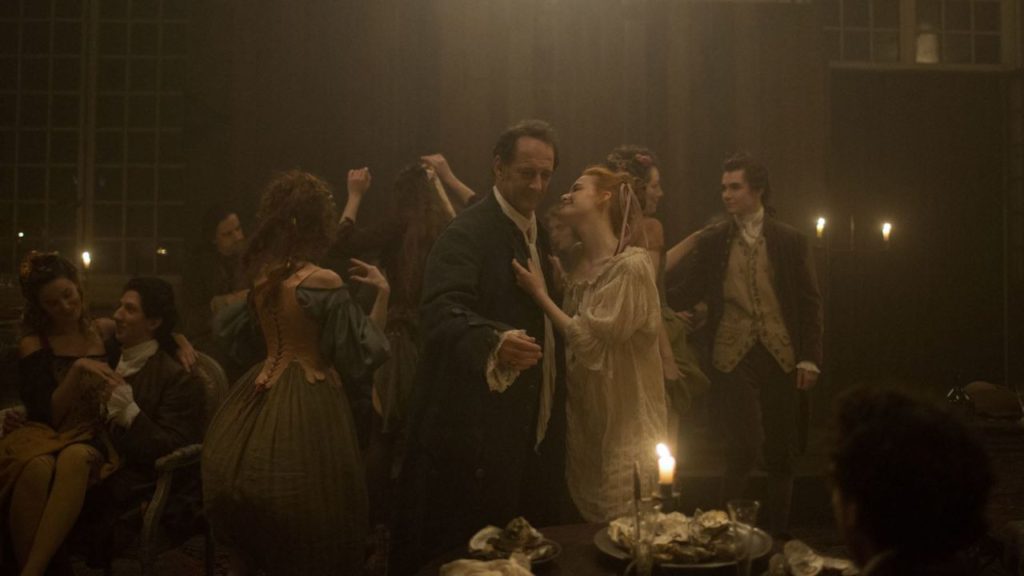
The absorbing coming of age drama Besties is set among Algerian teen girls in a hardscrabble immigrant urban French neighborhood. They’re growing up on the streets with minimal supervision by their hard-working single moms, and even their modest aspiration of a day trip to the beach seems beyond their grasp.
Yet, despite her downtrodden circumstances, the spirited Nedjima (Lina Al Arabi) is especially comfortable in her own skin. Supremely confident, she leads her girl squad, athletically matches up with the boys, and can talk trash like an NBA player.

Nedjima is fascinated by Zina (Esther Bernet-Rollande), a new girl in the hood, with relatives in a rival crew. Although Nedjima and Zina are on different sides (as in Sharks/Jets, Montagues/Capulets), there are attracted to each other and begin a secret romance.
Suddenly, Nedjima’s own identity is rocked – she never imagined that she could be a lesbian. This may be France, but even the kids in this insular immigrant community are homophobic. Suddenly she’s lost her community status and her support group. She reveals to Zina what teens often feel and never say, “I’m afraid of everything.” How is Nedjima going to recover her own agency and navigate being lesbian in her family and neighborhood?
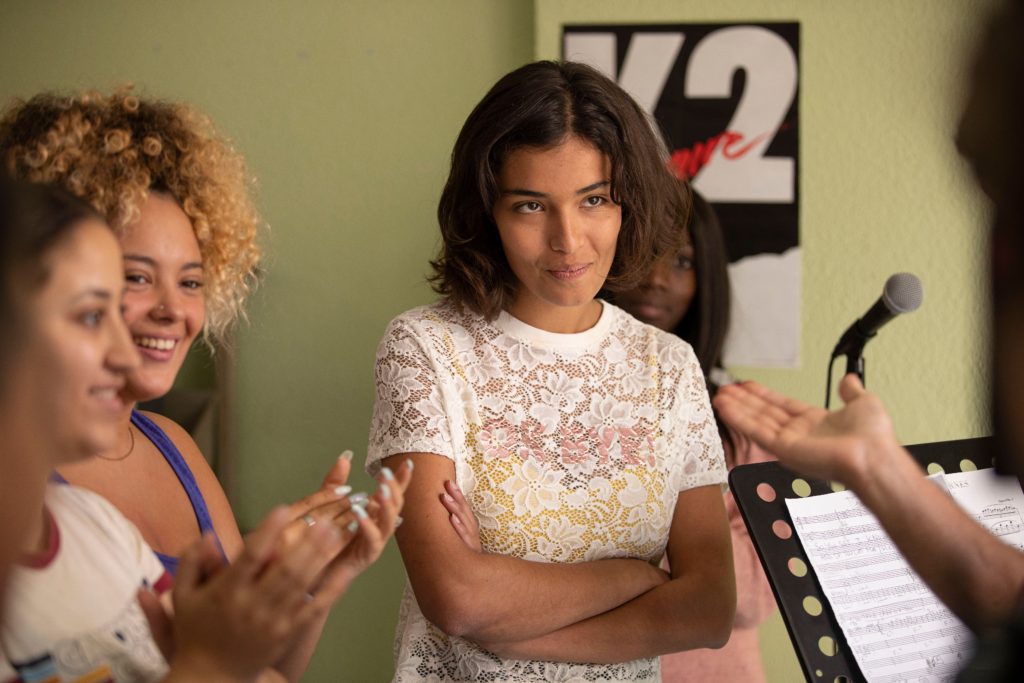
Besties’ two leads, Al Arabi and Bernet-Rollande are very charismatic. Al Arabi’s performance could be star-making. Her Nedjima registers strength and vulnerability, wilfulness and confusion, and the audience is on her side all the way.
Besties is the first feature for writer-director Marion Desseigne-Ravel, and it’s an impressive debut. The milieu seems absolutely authentic. Besties is briskly paced, and Desseigne-Ravel tells her story economically and powerfully, without a single false moment. The final shot captures the briefest of glances, the perfect culmination of Nedjima’s story.
Besties is a showcase for Al Arabi’s magnetism and Desseigne-Ravel’s storytelling. Besties screens at Frameline on June 19.

